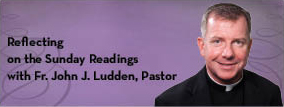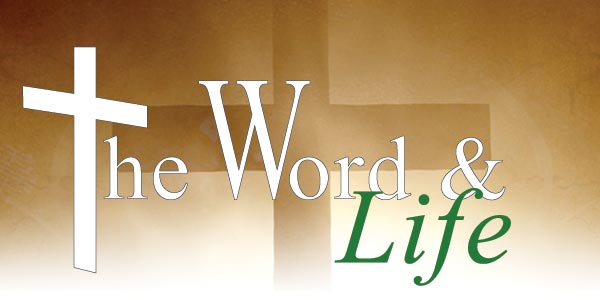
Welcome to the Word & Life Series. In this series, Fr. John Ludden will take the Sacred Scriptures offered at Mass each Sunday and apply them to our everyday lives. As you read Fr. John’s reflection, open your hearts and minds in new ways to God’s Holy Word. St. Paul says “The Word of God is living effective“. So as we journey together in the Word & Life, let us allow the wisdom of God to transform our relationship and our outlook on life, inspiring us to love one another as He has loved us. You are now invited to reflect on the Word of God which is the Way, the Truth, and the Life! Welcome again to the Word & Life!
March 25, 2012
Fifth Sunday of Lent Year B
2 Jeremiah 31:31-34
Psalm 51:3-4, 12-13, 14-15
Hebrews 5:7-9
John 12:20-33
Inevitability of Death ~ Necessary for Life
As we approach Holy Week, Sacred Scriptures take us into the last moments of Jesus’ public life. There must have been intensity present in the encounters that Jesus had with his disciples those last few days. The intrigue of Jesus’ monologue is intense. The disciples were brought to the harsh reality and inevitability of Jesus’ death. The grain of wheat, which is Jesus’ life, has to die to give life! Following Jesus with loving servitude brings along costly sacrifice. Even Jesus found this part of the journey troubling because he knew His hour was coming. Jesus calls on the Father to glorify His name and to give purpose to the upcoming suffering of the cross. When the voice from heaven speaks, it is clear that the Father in heaven intends to continually give glory to the commitment of discipleship.
The disciples did not fully appreciate the wisdom that Jesus imparted to them until they endured the folly of the cross. Jesus became the grain of the eternal for them and for us. Even as He went forth to celebrate the paschal feast and establish the new covenant in his blood, the violence of his departure must have been overbearing for those who had left everything to follow him. Through his death, he is brought to resurrection. The fruits of his sacrifice lead all of the world to salvation. Jesus’ death opens wide the gate to eternal life for all of humanity.
The Church is great in her wisdom. Every year we are reminded of the events that gave us new life in Jesus Christ. Our scriptures lead us into the reality of sacrifice. Sacred Scripture reminds us of the vast emotions present in Jesus and the disciples. These were real events with real people. God had become flesh to redeem the human condition. The cross takes the burden of sin. As Jesus is raised high on Calvary, so too is the hope that leads us beyond the torment and suffering of the cross and to the glory of the resurrection.
As we complete our Lenten journey, we are invited to meander the byways of salvation and contemplate how salvation is possible for us. This is a sacred time to reflect on the new covenant that inscribes upon our hearts the promise of life eternal. We are called to the same servitude to which Jesus gave witness. The cross of discipleship needs to be embraced every day in order for the Father’s will to be done. The needs around us in our community, country and the world are most certainly the fertile ground of God’s mercy waiting to unfold. We are seed — we are asked to die to self in order that others come to know the bounty of God working through us. Our dying to self ultimately leads us to others. Our sacrifices make the Word given to us in Sacred Scripture. As Catholics, we are called to evangelize the world through the way in which we lead all lives and respond generously to the wisdom of the gospel. The Word of God can come to life through our selfless acts of love.
Prayer
We pray: All that we have is a gift from you, O Lord. We offer you ourselves and our lives to you. Give us the courage to carry the cross of discipleship by serving others. We are grateful for the suffering you endured for our sakes. May we never forget the price you paid for our sin. When we are faced with the inevitability of death, may we be hopeful of the promise that you were willing to gift to us. Amen.
Reflection Questions
- What is most appealing about today’s gospel?
- What sacrifices do you make for God, for others?
- How are you planting the seed of faith?
- In what ways do you bring the Word of God alive in your life?
- What promises have you made to God?
- Name some of the ways in which you need to let go of certain aspects of your life that are preventing you from reaching your full potential.
- What cross has been entrusted to your care?
Wisdom of the Fathers
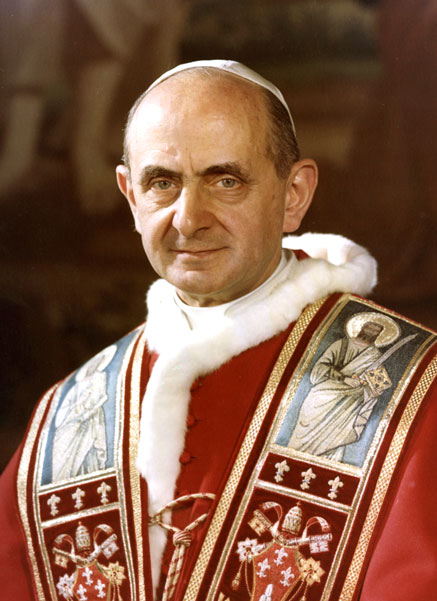 “Above all, the Gospel must be proclaimed by witness. Take a Christian or a handful of Christians, who in the midst of their own community show their capacity for understanding and acceptance, their sharing of life and destiny with other people, their solidarity with the efforts of all for whatever is noble and good. Let us suppose that, in addition, they radiate in an altogether simple and unaffected way their faith in values that go beyond current values, and their hope in something not seen and that one would not dare to imagine. Through this wordless witness these Christians stir up irresistible questions in the hearts of those who see how they live. Here we have the initial act of evangelization.”
“Above all, the Gospel must be proclaimed by witness. Take a Christian or a handful of Christians, who in the midst of their own community show their capacity for understanding and acceptance, their sharing of life and destiny with other people, their solidarity with the efforts of all for whatever is noble and good. Let us suppose that, in addition, they radiate in an altogether simple and unaffected way their faith in values that go beyond current values, and their hope in something not seen and that one would not dare to imagine. Through this wordless witness these Christians stir up irresistible questions in the hearts of those who see how they live. Here we have the initial act of evangelization.”
~ Pope Paul VI, Evangelization in the Modern World
March 18, 2012
Fourth Sunday of Lent Year B
2 Chronicles 36:14-16
Psalm 137:1-2, 3, 4-5, 6
Ephesians 2:4-10
John 3:14-21
God’s Sacrifice ~ Eternal Blessing
Today’s gospel speaks to the heart of the economy of salvation. Jesus’ comment to Nicodemus is one of the most well-known phrases of the gospel and has been preached countless times. God’s initiative for humanity is clear: “For God so loved the world that he gave his only Son, so that everyone who believes in him might not perish but might have eternal life.” God gives us the blueprint for the way that we are to sacrifice and give. In essence, today’s gospel reminds us of God’s stewardship. He makes the ultimate sacrifice by sending us his only Son to be the vehicle through which we are granted salvation. The sacrifice of Jesus on the Cross and the Resurrection offer us a covenant that can never be broken. Through the Sacraments of Initiation (Baptism, Confirmation and Eucharist) God enters into a covenant relationship with us, and we with God. Christ becomes the bridegroom and we, the Church, become his bride. In this covenant a pledge of love is given from now and into eternity. This covenant is given through the Trinity. The Trinity represents God’s giving of himself completely to us through salvation history. The Trinity is a model for us to imitate. When we think of how God’s gift to the world brought the blessing of salvation, we can also think of how our sacrifices and the sharing of our gifts can be a blessing to others. Every time we give in the name of God, we participate in his divine nature of the Holy Trinity. The Father gifts us with the Son, the Son bestows the Spirit, and the Spirit encourages us to listen to the gospel and give worship to the Father. The three persons of the Blessed Trinity are teaching us how it is possible to return the gift. This is ultimately about right relationship.
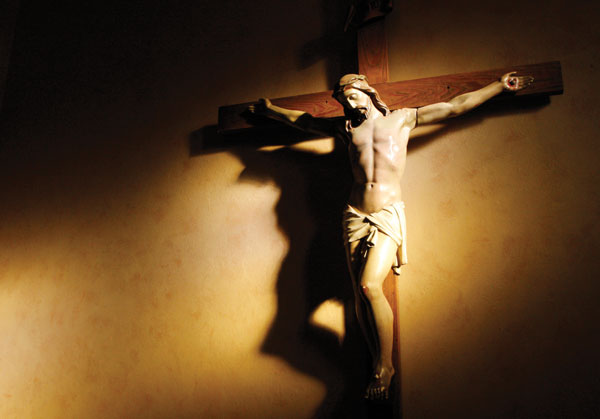
When we look at the experience of Jesus in the gospels, we constantly encounter the generosity of God. Every time Jesus heals another or exorcises evil, God’s gift is outpoured. When Jesus teaches his disciples about God’s mercy and forgiveness, we are given an unfathomable gift. Many times we are faced with the darkness of sin and uncertainty, but God is always present, ready to forgive. When Jesus seeks solitude, his heart is moved with pity at the sight of those who are crying out to him in their need. He is generous in his mercy in the way he abandons his need for solace to provide for God’s people.
Sacred Scriptures shed their light on our human condition, offering us a way out of the darkness of sin. The way of Christ invites us to embrace the life beyond death and the light beyond the darkness. The gospel message always gives hope and challenges the things in our lives that block us from fully experiencing God. Jesus teaches us that an important part of his message focuses on the poor and brokenhearted. Elsewhere, he reminds us if we neglect the needy, we neglect him. As Christians we belong to the mystical Body of Christ. Christ dwells in a community that belongs to him. Our challenge is to recognize that he is always present in the gift of the other. This is why we are called to be one in spirit and truth. Each of us is called to sacrifice and share our gifts with others so that Christ can be experienced through us. We can be truly blessed when we enter into relationship with others in this way.
Prayer
We pray: Even in our darkness, O Lord, you are near. Your light of truth shows us the way. Teach us to give the way that you gave to the world. Let us see that every time we give, we will receive. Help us to move beyond self-interest and embrace others so that in turn we may experience the gift of your blessing. When we come to our journey’s end, may we have accomplished your dream in us and receive your eternal blessing. Amen.
Reflection Questions
- What has God given you?
- How is the sacrifice of Jesus significant in your life?
- In what ways does the teaching of the gospel enlighten your mind and shape your choices?
- Name the times you have preferred the works or darkness rather than the works of the light.
- NWhat are the things in your life that are in need of change?
- What are you willing to sacrifice for God?
- How are you going to make sacrifices for the people around you?
- What choices do you need to make in order that your life becomes a gift to God?
Contemporary Wisdom
“God’s Faithfulness and Ours
When God makes a covenant with us, God says, “I will love you with an everlasting love. I will be faithful to you, even when you run away from me, reject me, or betray me.” In our society we don’t speak much about covenants; we speak about contracts. When we make a contract with a person, we say, “I will fulfill my part as long as you fulfill yours. When you don’t live up to your promises, I no longer have to live up to mine.” Contracts are often broken because the partners are unwilling or unable to be faithful to their terms.
But God didn’t make a contract with us; God made a covenant with us, and God wants our relationship with one another to reflect that covenant. This is why marriage, friendship and life in community are all ways to give visibility to God’s faithfulness in our lives together.”
— Henri J. M. Nouwen (Bread for Journey)
March 11, 2012
Third Sunday of Lent Year B
Exodus 20:1-17
Psalm 19:8, 9, 10, 11
1 Corinthians 1:22-25
John 2:13-25
Cleansing Absurdity
The arrival of Jesus as Messiah has a profound impact on our lives as Christians. Jesus is the one who brings salvation. He is the bridge between heaven and earth. The teaching of Jesus challenges the conventional wisdom of his day and cleanses the absurd practices that had become common place in the Judaic faith. In today’s gospel we encounter an angry Christ. The people of Jesus’ day were hungering for intimacy with God as they tried to reconcile their failures. It was common for the people to sacrifice animals in atonement for their sins. The temple traders benefited from the people’s guilt, and the sale of animals for sacrificial offering became a lucrative business. Jesus recognizes the people’s faith. He confronts the abuses of the day traders. The anger that Jesus demonstrates is a justified refusal to allow anyone to fool around with God’s mercy. The temple was a house of prayer — not a place for people to be taken advantage of. Jesus’ sign would be to destroy the temple and rebuild it in three days. For the discerning Christian we know this means his death and resurrection, the once-and-for-all sacrifice that would bring atonement for sin!
The Christian experience has from time to time bargained with the mercy of God. The Reformation occurred because of the absurd practices that had become the fabric of the ecclesial life. One of the common abuses was that of the sale of indulgences. People believed if they bought and sold indulgences that they could buy their way into heaven and be afforded salvation. The only problem was that the Reformers went too far. The Reformation provoked the much needed reform to the Roman Catholic Church. In many aspects, the reformers threw out the baby with the bathwater. They refused to recognize Christ’s real presence in the Eucharist and also refused to accept the great commissioning of Jesus bestowing authority upon the apostles and their successors. The Counter Reformation provided the people of the Church with a solid tradition in which they could encounter the mercy of God without the trappings of wealth. The mercy of God could be experienced through the Sacrament of Penance.
If we are truthful with ourselves, we have all played games in our relationship with God. How many of us promise God that we are going to walk away from a recurring sin and break that promise? People find it hard to let go of the sin of the past. One of the greatest sins we commit is not allowing God to forgive us. It is absurd to believe that God will not forgive us when we are contrite. The whole project of Jesus’ mission was to reconcile the world to himself by the blood of His cross. We can use the Ten Commandments to see what God expects from us. Each commandment points to the significance of right relationship with God and with one another. Human weakness breaks that right relationship. However, God constantly invites us to come back and to be reconciled with Him. This is the beauty of Lent. We are reminded every time we celebrate Mass, that the once-and-for-all unbloodied sacrifice, that Christ intends reconciliation and intimacy with us. In the Sacrament of Reconciliation we can name our sin and allow Christ to forgive us and bring us incomprehensible healing.
Prayer
We pray: Be merciful to us, O Lord, for we have sinned! May our hunger for you bring us to the threshold of eternal life. Enable us to experience your Truth and forgiveness through the gift of the Church. Encourage us in the midst of failure and help us to move on. Create within us a new heart so that we may experience You in new ways. Amen.
Reflection Questions
- What are some of the foolish notions in your life that get in the way of God?
- How have you experienced God’s mercy?
- Where have you demonstrated mercy and compassion in your relationships?
- How passionate are you as a disciple of Christ?
- Name the times in your life when you have made a stand to witness to truth?
- What needs to be cleansed in your life to enable you to become closer to God?
- How do the 10 Commandments offer you a blueprint for your choices and a compass for your life?
Wisdom of the Fathers
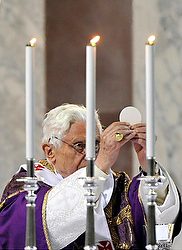 “Our heart is restless for God and remains so, even if every effort is made today, by means of most effective anaesthetizing methods, to deliver people from this unrest. But not only are we restless for God: God’s heart is restless for us. God is waiting for us. He is looking for us. He knows no rest either, until He finds us. … That is why He set out on the path towards us, to Bethlehem, to Calvary, from Jerusalem to Galilee and on to the very ends of the earth. God … looks out for people willing to ‘catch’ His unrest, His passion for us, people who carry within them the searching of their own hearts. … This was the task of the Apostles: to receive God’s unrest for man and then to bring God Himself to man. And this is your task as successors of the Apostles.”
“Our heart is restless for God and remains so, even if every effort is made today, by means of most effective anaesthetizing methods, to deliver people from this unrest. But not only are we restless for God: God’s heart is restless for us. God is waiting for us. He is looking for us. He knows no rest either, until He finds us. … That is why He set out on the path towards us, to Bethlehem, to Calvary, from Jerusalem to Galilee and on to the very ends of the earth. God … looks out for people willing to ‘catch’ His unrest, His passion for us, people who carry within them the searching of their own hearts. … This was the task of the Apostles: to receive God’s unrest for man and then to bring God Himself to man. And this is your task as successors of the Apostles.”
— Pope Benedict XVI, in a homily on the Feast of the Epiphany, Jan 6, 2012
March 4, 2012
Second Sunday of Lent Year B
Genesis 22:1-2, 9A, 10-13
Psalm 116:10, 15, 16-17, 18-19
Romans 31B-34
Mark 9:2-10
Alteration & Transformation
In the gospel today we recall that Jesus led Peter, James and John to a place where they would encounter his transfiguration. This was a moment in time when heaven was wedded to earth and humanity was opened to the glory of God. Could you imagine what went through these three men’s minds? The encounter gave Peter, James and John a new insight into Jesus because they glimpsed his divinity. Peter announces, “Rabbi, it is good that we are here!” He is overjoyed with this experience of God. As a Jew, Peter would have held great reverence to the Law and Prophets. On the day of the transfiguration, he witnesses with his very eyes the fulfillment of the Law and the Prophets. Peter wanted to capture the moment by erecting three tents: one for Jesus, one for Moses, and one for Elijah. It is obvious to us all that Peter did not want this experience to go away! Mark the Evangelist also recounts that the Father’s voice can be heard, “This is my beloved Son. Listen to him.” The three disciples had listened to the dictates of the Law and the promptings of the prophets, now they must listen to the wisdom of God’s beloved – Jesus of Nazareth.
The Transfiguration is an important event in salvation history. It reminds the Church of the true identity of Jesus, both human and divine. We are called to the Truth of Jesus through listening to his Word and being doers of his Word. We are urged to “Listen to him.” In every aspect of life and in all of our relationships whether they are familial, social, or political, we are asked to listen to the wisdom of Jesus and apply it. During this season of Lent, we should commit ourselves to discerning the truths of the gospel and undergo conversion. Each of us is asked to transform our lives by what we know of God’s message. Peter, James and John had a life-changing experience on the day of Transfiguration. Jesus’ appearance was altered that day as the apostles witnessed his glory. But the faith of these simple men must have been transformed as well. The words of the gospel are the words of everlasting life. If we listen to these words, take them to heart, and act upon them, we open ourselves to this promise of salvation. Sometimes the gospel requires that we alter the way in which we conduct our lives and choose the road less traveled.
As we go through life we experience the highs and the lows in our relationship with God. There are times when we have profound experiences and we are convinced of God’s presence. During these times, most of us wish we could dwell in that moment forever. Many of us have times when we doubt our faith and sometimes feel we are totally alone. During these moments of doubt, we need to recall the moments in which we were totally convinced of the presence of God. The gospel reminds us elsewhere that we are not left alone as orphans. Jesus tells us that he will be with us until the end of the age. The experiences of transcendence within our lives make up our own particular histories — they bring us to the sacrament of the present moment.
Life has a habit of teaching us the truths about God. The Church in Her wisdom gives us the liturgical seasons in which we experience life, death and resurrection. All of us have to experience death in order to come to resurrection. The different events of life can bring us to a deeper reality of God’s presence. Our lives change when we encounter forgiveness and healing. We all become aware of the other side of life when we encounter the death of a loved one. When parents experience the newness of life, they encounter the God of Creation and the innocence of humanity. When we witness great acts of charity and heroism we are made aware that we belong to a larger family of the world and recognized that we are People of God. These experiences transform us and remind us that God is forever with us working through, in and with us.
Prayer
We pray: Lord, it is good that we are here! We thank you for the gift of life! We bless you and praise you for the message of the gospel handed on to us. Let us always remind ourselves in the profound moments of life that you are always journeying with us. When we lose hope, may we have the courage to listen to the voice of your Son, who never abandons us. Amen.
Reflection Questions
- How does the gospel challenge conventional wisdom?
- What needs to be altered in your way of living to bring you in alignment of God’s plan for you? When have you been absolutely convinced of God’s presence?
- How do you use your faith to shape your decisions?
- Name the ways in which you listen to God’s voice in your daily living?
- How does God reveal Himself to you through people and specific events?
- Where do you go to discover God?
- Where do you take others to experience God?
Wisdom of the Fathers
“The Lord Jesus Himself shone bright as the sun; His garment became white as the snow; and Moses and Elijah talked with Him. Jesus Himself indeed shone as the sun, signifying that He is “the true light that enlightens every man come into the world.” What the sun is to the eyes of the flesh, so He is to the eyes of the heart; and what that is to the flesh of men, that He is to their hearts…
And in this glory is fulfilled what He has promised to those who love Him: “he who loves me will be loved by My Father, and I will love him.” … Great gift! great promise! God holds for you nothing less than Himself. O you covetous one; why isn’t Christ’s promise enough for you? You seem to yourself to be rich; yet if you do not have God, what do you have? Another person is poor, yet if he has God, what does he lack?
Come down, Peter! You wanted to rest on the mount. Come down and “preach the word, be instant in season, out of season, reprove, rebuke, exhort with all longsuffering and doctrine.” Persevere, work hard, bear your measure of torture — so that you might possess what is meant by the white garment of the Lord, through the brightness and the beauty of an upright labor in charity …Hear and listen, O covetous one: the Apostle explains clearly to you in another place: “Let no man seek his own, but another’s.” He says of himself, “Not seeking mine own profit, but the profit of many, that they may be saved.”
— St. Augustine of Hippo (354-430)
View Current Word & Life
VIEW February 2012
VIEW January 2012
VIEW 2011 Word & Life

